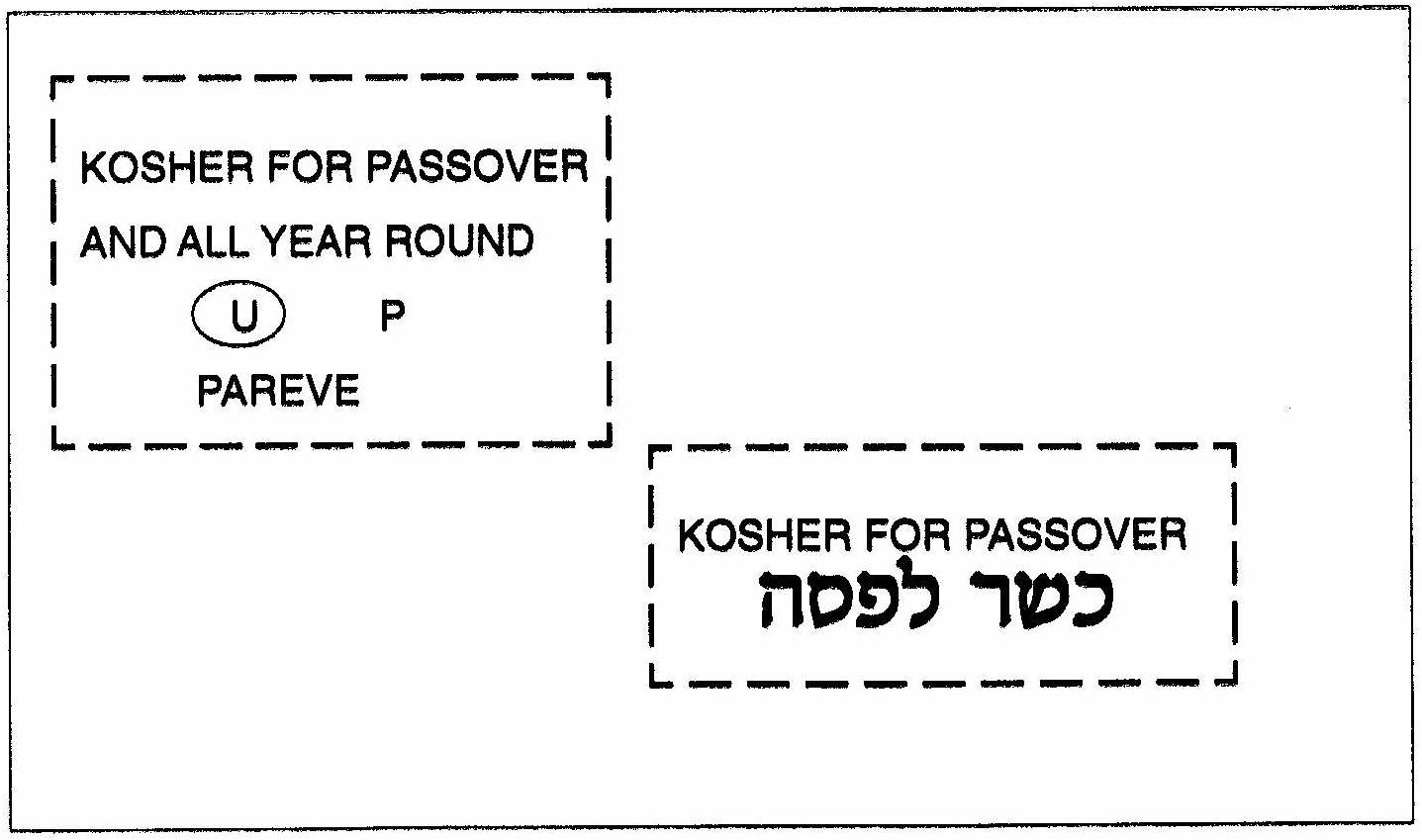
Buying Kosher Passover Food
As we prepare for the upcoming Passover holiday, we need to shop for food that can be eaten during Passover. During the eight days of Passover, we cannot eat chometz.
Shopping for Passover food can be fun and at the same time a headache! If you are invited to someone’s house during the Passover holiday and they keep kosher, it helps to check one of several publications that lists which food is kosher this year. They update this list every year.
When you see the symbol ‘P’ on the ‘Kosher’ symbol, what exactly does it mean? Is it kosher for Passover, or is it pareve which means it can be eaten with meat or dairy?
Checking Passover Foods
To determine if a product is ‘Kosher for Passover’, most processed foods and beverages require special rabbinical supervision for Passover use. They must also be Kosher for year-round use, and prepared in accordance with all of the regular Jewish dietary laws. So, look for the (U) P or the (U) Kosher for Passover identification or other approved (U) symbols.
It is also helpful to be familiar with the rabbi or organization giving the Passover endorsement. Just stating that the product is ‘Kosher For Passover’ does not automatically guarantee that the product is acceptable for Passover use.
The largest and most widely respected Kashruth supervisory agency is the Kashruth Division of the Union of Orthodox Jewish Congregations of America. Its registered service mark, (U) P. on food products is a guarantee of the highest standards of Kashruth for Passover. Check with a rabbi about any processed foods, medicines or vegetables that does not list any rabbinical supervision to be sure that they can be used during Passover.
Making Preparations
The house must be thoroughly cleaned of all ‘Chometz’ before Passover. Chometz is anything that is made with the grains such as fermented or leavened wheat, rye, oats, spelt and barley. Any Chometz not removed from a Jewish home before Passover should be sold and the Rabbi handles it if you ask him to do so. Jewish law does not allow use of any Chometz which remains in a Jew’s possession during Passover, even after the holiday is over. All cooking and eating utensils must be used only for Passover use, or “made Kosher” after consulting with a rabbi and following Jewish law. Preparations must be completed by the morning before Passover.
Passover Restrictions
Passover has similar requirements and traditions as Sabbath such as restrictions on work and creative activity except that you can carry and use fire for cooking and to prepare food and it apply to all Jews on the first two and last two days of Passover. Full Sabbath rules remain in effect on Friday evenings and Saturdays during Passover.
Removing Chometz
Before Passover, every Jew must remove all Chometz from his home, property, and all premises under his or her jurisdiction (i.e. desk, office, locker, car). Even if you will not be there during Passover, if you are there within thirty days of Passover, you are still obligated to remove all Chometz before Passover.
A blessing is given before the search for Chometz begins, and there is a disclaimer that is recited afterwards. These texts can be found in most traditional Haggadahs.
Special Utensils
Jewish law requires special dishes, cooking utensils, glassware, and silverware be used for Passover use with separate meat and dairy sets. They can be made of any material, including plastic or paper because some glue on paper products is chometz. It must be checked of first. Once these are used for Chometz, they cannot be used again on Passover. If it is not possible to have separate utensils for Passover, some year-round utensils coin be used for Passover after a special kashering procedure.
“Kashering” should only be done under the guidance an Orthodox rabbi. Metal utensils, if they can be thoroughly cleaned, may be “kashered”, but earthenware utensils may not be “kashered”. Procedures for kashering depend on how the utensil was used during the year. Check with your Rabbi for details.
Shelves, countertops and eating surfaces used year round should be cleaned and covered for Passover use, and special dish racks, sink racks and wash basins should be used. Cooking surfaces should be thoroughly cleanedand covered. Ovens should be thoroughly cleaned, and either kashered by being burnt out or used with a special insert liner.
What To Look Out For
Many food products does contain Chometz or Kitniot ingredients so you need to be careful to use only food products manufactured under reliable rabbinical supervision for Passover use. That includes beverages, condiments, spices, and all processed foods such as fruits and vegetables, fish, meat and dairy products, and baked goods.
Grain alcohol is a fermentation product, and is therefore Chometz. Any items that contain grain alcohol, including whiskey, liquor, and liquid medications and even those which are not usually taken internally (such as perfumes cologne, toilet water, hair spray, hair tonic, shaving lotion, mouthwash, liquid and roll-on deodorants) should be treated as Chometz unless specifically approved for Passover use.
Totally inedible non-food products which contain alcohol such as polish, ink, paint and floor wax, acceptable and can be used for Passover use. Any person with a medical condition should consult with a doctor and Rabbi to determine which medicines to take during the holiday, and whether any special procedures needs to be followed.
JDCC News is grateful to the Orthodox Union for assisting with preparation of this article.





